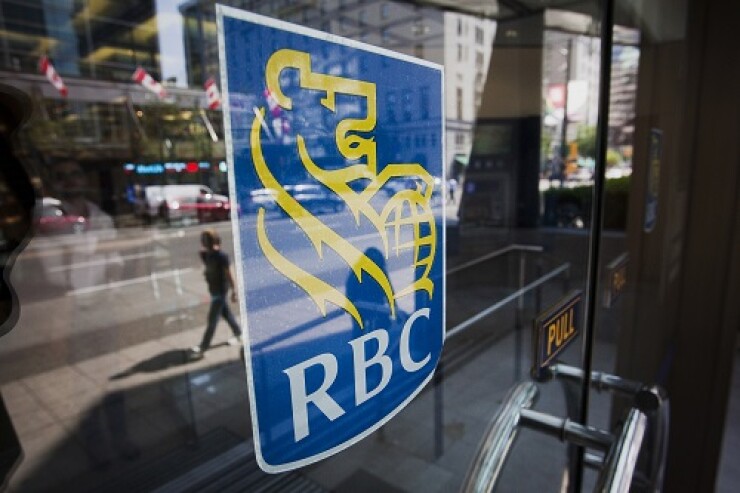RBC's U.S. wealth management business saw a revenue bump in its latest quarter, thanks to a healthy inflow of new assets and market gains for invested assets.
But the bottom line for all its wealth businesses was constrained by expenses related to its
Royal Bank of Canada reported Wednesday that revenue for its U.S. subsidiary, RBC Wealth Management, rose by 7% year over year to $1.7 billion in the three months leading up to July 31, which it calls its third quarter. That included contributions from City National, a Los Angeles-based bank RBC bought in 2015.
READ MORE:
Helping to buoy that figure was just over $2 billion in net new assets (reported as $2.8 billion in Canadian dollars). Those inflows, along with market gains, pushed the wealth unit's tally for assets under administration, or AUA, up by 11% to $718.4 billion. AUA includes not only assets in fee-generating accounts but also assets held for safekeeping and recordkeeping purposes.
Higher revenue offset by 'recruitment of financial advisors'
For all its wealth management businesses — including those in the U.S., Canada and elsewhere — RBC reported its revenue increased by 11% year over year to CA$5.5 billion in the third quarter. The units' non-interest expenses were up 10% to CA$4.2 billion.
RBC Chief Financial Officer Katherine Gibson told analysts in a call Wednesday that "higher revenue this quarter was partly offset by higher variable compensation commensurate with increased compensable revenue and investments including technology and
RBC has been pulling over some large teams
Across its wealth businesses, RBC reported adding 27 advisors net to its headcount in its third quarter, bringing its total to 6,218. The firm had 6,092 advisors in the same period a year ago.
Net income and expected return on advisor recruiting
Recruiting deals and other expenditures left the overall wealth business with just over CA$1 billion in net income, a figure up 15% year over year. The units' efficiency ratio (the share of revenue left over after expenses) remained virtually unchanged year over year at 75.3%.
RBC CEO David McKay painted recruiting as an investment that eventually leads to higher revenue figures.
"We continue to attract experienced financial advisors in wealth management, especially in the United States, where we expect higher recurring revenue from this recruitment," he told analysts.
RBC also noted that its revenues for the same quarter a year ago had been held back because of the need to set aside money to cover possibly bad loans, many of them held at City National. City National, which maintains an independent brand, was among the regional banks that required capital infusions after Silicon Valley Bank and other financial institutions failed in spring 2023, giving rise to






